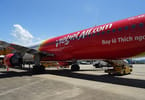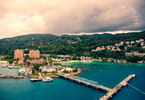BEIJING — A Chinese official on Thursday denied reports that Tibet will be closed to foreign visitors over the sensitive Oct. 1 national day period.
Liao Yisheng, spokesman for the Tibet Tourist Administration, told The Associated Press that foreigners are permitted to visit as members of tour groups, but not individually.
He also said authorities had advised travel agencies to “appropriately adjust their arrangement to avoid the peak time,” but said that was due to high demand, not because of the anniversary.
Another tourism bureau official, Tan Lin, said Tuesday that foreign tourists would be banned starting that day, but those who have already arrived in Tibet would be allowed to stay. Hotel clerks and tour agents said they also had been informed of a ban on foreign tourists lasting through Oct. 8.
China requires foreigners to obtain special permission to visit Tibet and routinely bars them from all Tibetan minority areas during sensitive periods.
Such travel bans are usually delivered orally to tourism industry leaders, apparently to avoid issuing documents that could be publicized and potentially embarrass officials eager to project a sense of calm and control.
The reported ban appeared to be part of a massive nationwide security clampdown aimed at blocking any disruption of the October celebrations of the 60th anniversary of the founding of the Communist state. Patrols and identification checks have been stepped up in cities nationwide, while Beijing has been surrounded by a security cordon and its streets flooded with extra police and yellow-shirted civilian lookouts keeping watch for anything suspicious.
Tibet has been periodically off-limits since anti-government riots in March 2008 in which Tibetans attacked Chinese migrants and shops, torching parts of Lhasa’s commercial district.
Chinese officials say 22 people died, but Tibetans say many times that number were killed. The violence in Lhasa and protests in Tibetan communities across western China were the most sustained unrest since the late 1980s.
Security was intensified again in the weeks leading up to the Beijing Olympics last year and then again this past February and March because of anniversaries of the violence and the Tibetan spiritual leader the Dalai Lama’s flight to exile.
China says Tibet has historically been part of its territory since the mid-13th century, and the Communist Party has governed the Himalayan region since Communist troops arrived there in 1951. Many Tibetans say they were effectively independent for most of their history and that Chinese rule and economic exploitation are eroding their traditional Buddhist culture.
WHAT TO TAKE AWAY FROM THIS ARTICLE:
- The reported ban appeared to be part of a massive nationwide security clampdown aimed at blocking any disruption of the October celebrations of the 60th anniversary of the founding of the Communist state.
- Security was intensified again in the weeks leading up to the Beijing Olympics last year and then again this past February and March because of anniversaries of the violence and the Tibetan spiritual leader the Dalai Lama’s flight to exile.
- Such travel bans are usually delivered orally to tourism industry leaders, apparently to avoid issuing documents that could be publicized and potentially embarrass officials eager to project a sense of calm and control.






















